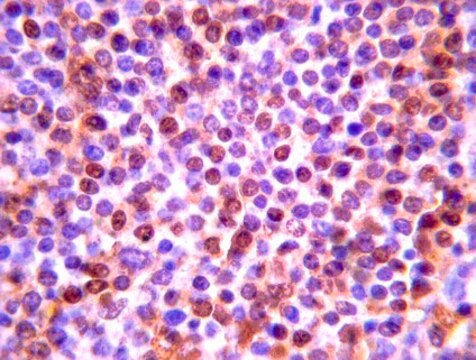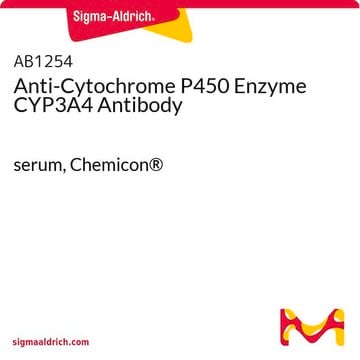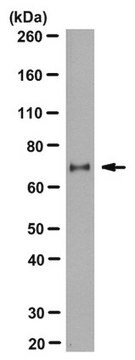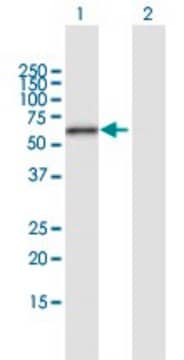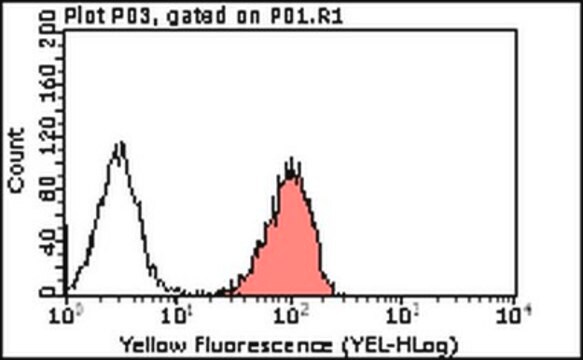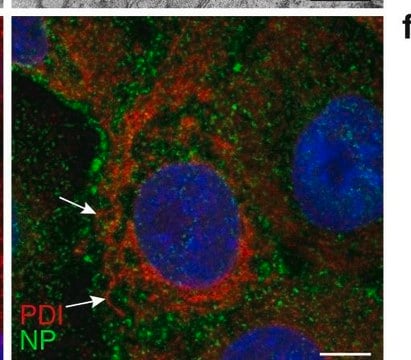MABT376
Anti-Ero1 Antibody, clone 2G4/12
clone 2G4/12, from mouse
Synonym(s):
ERO1-like protein alpha, ERO1-L, ERO1-L-alpha, Endoplasmic oxidoreductin-1-like protein, Oxidoreductin-1-L-alpha
About This Item
Recommended Products
biological source
mouse
Quality Level
antibody form
purified immunoglobulin
antibody product type
primary antibodies
clone
2G4/12, monoclonal
species reactivity
mouse, rat, human
technique(s)
immunofluorescence: suitable
immunoprecipitation (IP): suitable
western blot: suitable
isotype
IgG2aκ
NCBI accession no.
UniProt accession no.
shipped in
wet ice
target post-translational modification
unmodified
Gene Information
human ... ERO1L(30001)
Related Categories
General description
Immunogen
Application
Apoptosis & Cancer
Apoptosis - Additional
Immunoprecipitation Analysis: A representative lot immunoprecipitated Ero1 in Ero1 transfected HeLa cell lysate (Prof. R. Sitia, San Rafaele Scientific Institute, Milano, Italy).
Immunofluorescence Analysis: A representative lot detected Ero1 in HeLa cell lysate (Prof. R. Sitia, San Rafaele Scientific Institute, Milano, Italy).
Quality
Western Blotting Analysis: 1 µg/mL of this antibody detected Ero1 in 10 µg of HEK293 cell lysate.
Target description
Physical form
Storage and Stability
Analysis Note
HEK293 cell lysate
Other Notes
Disclaimer
Not finding the right product?
Try our Product Selector Tool.
Storage Class Code
12 - Non Combustible Liquids
WGK
WGK 1
Flash Point(F)
Not applicable
Flash Point(C)
Not applicable
Certificates of Analysis (COA)
Search for Certificates of Analysis (COA) by entering the products Lot/Batch Number. Lot and Batch Numbers can be found on a product’s label following the words ‘Lot’ or ‘Batch’.
Already Own This Product?
Find documentation for the products that you have recently purchased in the Document Library.
Our team of scientists has experience in all areas of research including Life Science, Material Science, Chemical Synthesis, Chromatography, Analytical and many others.
Contact Technical Service